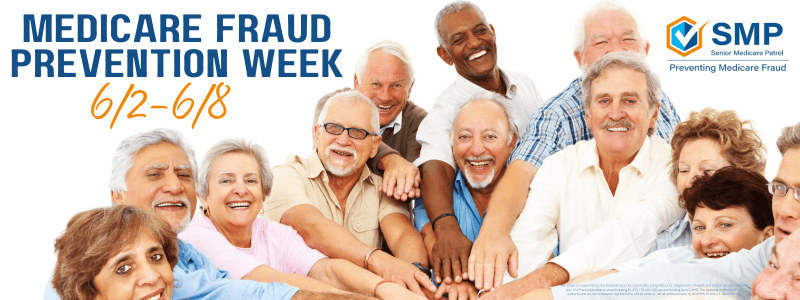Weekly Update, May 30, 2025: With Medicare Fraud Prevention Week starting on Monday, our focus this week is on the steps retirees can take to help prevent fraud and what you can do to better protect yourself.
We also want to remind Mass Retirees members that our Cape Cod Area Meeting takes place next Wednesday, June 4th, at 11:00 AM. Light refreshments will be served, door prizes drawn at the conclusion of the meeting, and members are always welcome to bring a guest.
Medicare Fraud Prevention Week
According to the Centers of Medicare and Medicaid Services, Medicare fraud costs American taxpayers more than $60 billion a year! Medicare fraud schemes come in various forms, from simple overcharges and fraudulent billing practice to fictitious orders for durable medical equipment and supplies. In many cases, fraud can also involve identity theft. This puts retirees at even greater personal risk.
Sponsored by the federal government, Medicare Fraud Prevention Week serves to not only bring attention to the issues of fraud and abuse, but to also educate retirees and caregivers on the steps you can take to better protect yourself. In addition, we want to leave members with the knowledge and resources you need to combat those seeking to defraud Medicare, and, in some cases, retirees themselves.
For this week’s video, we are joined Director Lucilia Prates-Ramos and Outreach and Education Coordinator Lori Laviolette from the Massachusetts Senior Medicare Patrol (SMP), an organization on the front lines of combating healthcare billing errors, fraud, and abuse. As a national organization, SMP plays an important role of helping to educate and serve as a resource for retirees and their caregivers.
According to SMP, “The Massachusetts Senior Medicare Patrol (SMP) Program helps beneficiaries better understand their Medicare Summary Notices (MSN), Explanation of Benefits (EOB), and confusing billing statements. Additionally, the SMP Program helps guide beneficiaries in addressing questionable medical charges and care.”
The organization also serves as a valuable resource in both reporting and tracking cases of potential Medicare fraud and abuse. SMP not only serves as a valuable resource for Medicare enrollees and caregivers but can also provide direct help to those who may be victims of Medicare fraud or abuse.
If you or someone you know has received a Medicare Summary Notice (MSN), Explanation of Benefits (EOB), or a medical bill with questionable charges, SMP can help! Call the MA SMP Program at 800-892-0890 or email them at Help@MASMP.org. Learn more about SMP at https://www.masmp.org.
Steps You Can Take to Protect Yourself
While much of the items listed below are discussed in this week’s video, we believe that the information is well worth repeating.
- Never provide your personal information over the phone. It is highly unlikely that Medicare, Social Security or any government entity will initiate a phone call with you requesting your Medicare or Social Security numbers, address, banking, or any other personal information. If you receive such a call, simply hang up! Members are encouraged to create a Medicare.gov account to access their Medicare statements online or remind them to always open their mail and review these documents.
- Keep a medical journal. This could be a Calendar or notebook containing a list of medical appointments and dates. Members can also request a free My Health Care Trackers by calling (800) 892-0890 or visiting masmp.org. Record the name of the medical provider and the nature of the visit, along with specific information related to any procedures or tests you may have had. This practice does not just apply to appointments you have with providers outside the home. If you are receiving any type of home care services, be sure to document these visits as well. Like your traditional medical care, it is important to record who is providing the in-home service, how long they were there and what was provided. It is also important to document if the person does not show or shows up at a different time than scheduled.
- Review your records. Following medical appointments, procedures, tests, and hospital stays you will receive documentation from Medicare detailing the visit. Referred to as a Medicare Summary Notice or MSN, usually with This Is Not a Billprinted on the document, the statement lists the details of each medical encounter you may have.
- Question inaccuracies. If you believe something is out of order on the statement, such as a bill having been submitted for a visit or procedure that you did not have, contact the provider and question it. You can also contact the Senior Medicare Patrol to report what you believe to be a fraudulent claim. This is particularly true if the provider listed on the MSN is not someone you have seen.
Not all billing mistakes are fraud. As we talk about in the video, not all billing errors are intentional. Sometimes a mistake is nothing more than an innocent mistake. However, even mistakes should be reported and cleared up.
Bottom line, if you see something that does not seem correct, please take the initiative to report it.



